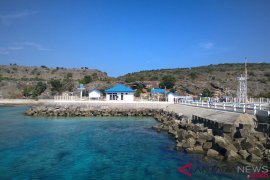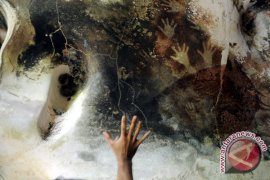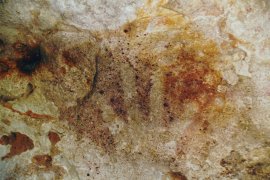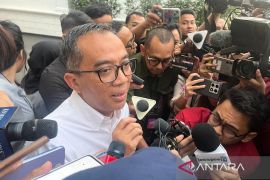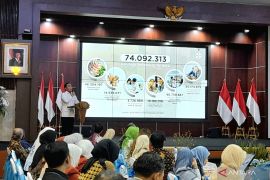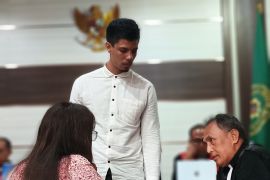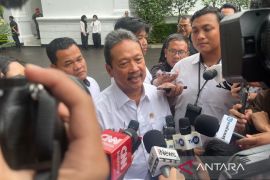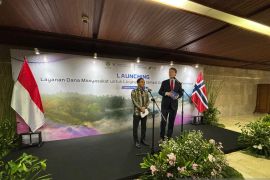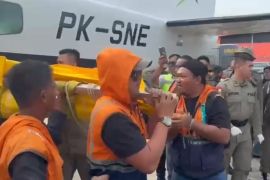Typically, these islands are geographically distinct from the rest of the country and populated by national minority groups who yearn for regional autonomy.
For the people of Lirang, Wetar, Kisar, and Romang, obtaining regional autonomy will ensure their equal footing and securing equal political rights, and autonomy would allow them to further encourage the government in launching development programs aimed at improving their welfare.
These islands are actually endowed with abundant mineral and natural resources but, ironically, the people on the islands continue to live in poverty.
In fact, almost five years after becoming part of Southwest Maluku (MBD) district in 2008, these islands have yet to witness significant development.
Even the islands' resources have not been exploited for the welfare of the local communities, or for the improvement of transportation and road networks on these four islands.
Compelled to enjoy equal development with the rest of the country, the Southernmost Islands People Alliance (ARKT), over the past several months, has submitted a petition to the Home Affairs Ministry to become autonomous as the new Southernmost Islands District.
"We submitted the proposal on the formation of the Southernmost Islands District to the House of Representatives` Commission II (overseeing domestic governance and regional autonomy) and Home Affairs Ministry through the Directorate General of Regional Autonomy on March 13, 2013," ARKT Chairman Alex Dadiara said.
Dadiara noted that the people of Lirang, Wetar, Kisar, and Romang wanted to split from Southwest Maluku District to have their own regional administration and, therefore, the proposal has been submitted to the House Commission II.
According to Dadiara, the House`s Commission II guaranteed the expansion of Maluku`s Southernmost Islands autonomy to separate from Southwest Maluku (MBD) district, and promised to fight for the establishment of Maluku`s Southernmost Islands as a new autonomous district before the end of its term in 2014.
Further, on February 15, 2013 all public groups in the Southernmost Islands People Alliance (ARKT) declared their intention to expand the Southernmost Islands District in Wonreli, Kisar island.
"With our sublime desire, we pledge to continue to fight for the realization of special autonomy for the Southernmost Islands as the front line of the Unitary State of the Republic of Indonesia (NKRI)," they wrote in their declaration.
The Southernmost Islands are directly adjacent to Timor Leste, the country that had been part of Indonesia for 23 years before gaining sovereignty in 2002 following a UN-sponsored referendum.
Asked why the expansion of Southwest Maluku District was necessary, Dadira said it had to do with border issues, outlying regions, and the integrity of NKRI.
"Romang, Kisar, Wetar, and Lirang are the outlying islands at the border of Timor Leste and, therefore, they deserve autonomy in an effort to maintain the integrity of the unitary state of Indonesia," Dadiara noted.
According to Almeida Petrusz, a Southernmost Islands community figure, the islands of Romang and Wetar actually have abundant resources of gold, copper, ferruginous sand, natural gas and white gold, in addition to forest resources such as rattan, clove, nutmeg, and sandalwood.
"But these resources have yet to be exploited optimally for the prosperity of the local communities," Almeida said.
Besides, he pointed out that poor infrastructure is still a large issue that must be overcome as soon as possible so it does not slow the pace of regional development.
"The problem of poor transportation facilities and infrastructure on the islands of Romang, Kisar, Wetar, and Lirang merits government attention in order to shorten the span of control and increase accessibility and mobilization of people and goods," noted Almeida.
Almeida admitted that land transportation facilities, such as roads and bridges, were far from sufficient on these four islands, while air transportation, even with the presence of Purpura airport on Kisar Island, remains inadequate to accommodate the ever-increasing demand.
Further, with the population dispersed thinly across the islands, he said that the cost of providing transportation, infrastructure and social services to the local population was high.
These costs rise even more markedly on the islands of Wetar and Lirang, severely limiting the range of economic activities available to the local communities.
"In light of this, the Southernmost Islands people`s aspiration to demand new autonomy is in line with the objective of the Unitary State of Indonesian Republic to raise the living standards of its people," Almeida said.
He added that, viewed from various aspects, the Southernmost Islands in Southwest Maluku district meets the criteria to be developed into a new district.
Meanwhile, ARKT secretary Hendrik Rupilu said these four islands are in the front line of NKRI and deserve special attention from the central government.
"Serious attention from the central government must be given to these four islands in terms of development to shorten the span of government control," Rupilu said.
He noted that when the House endorses the Southernmost Islands as a newly autonomous district, it is expected to be a solution to optimize public service and enable government control to be more effective and efficient.
"To be effective, concrete action is needed from the government in extending its clout over vulnerable border regions to keep them safe from annexation and smuggling efforts," Rupilu said.
He added that these four islands are at strategic geographical location and can be developed into a national force to counter any threats to the country.
"Therefore the struggle to gain a new autonomy must go on, and all people of the Southernmost Islands should work together to achieve it," he noted. (*)
Reporter: Otniel Tamindael
Editor: Otniel Tamindael
Copyright © ANTARA 2013
